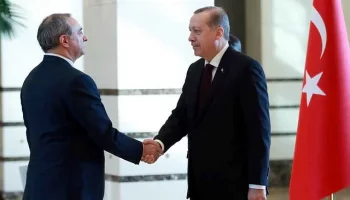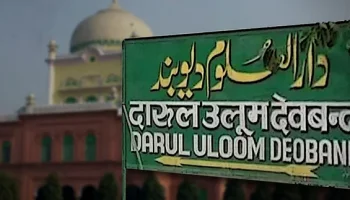Several borders emerged with the independence of the subcontinent in 1947. But religious ties and tensions remained. It has not been possible to sidestep these. Hindus, Muslims, Buddhists and Christians in large numbers are scattered all over Bangladesh, Pakistan, India, Nepal and Sri Lanka. So when the prime minister of Bangladesh said that communal crimes in one country of the subcontinent can set off a reaction in another country of the region, this was a reflection of harsh reality. As a politician, by highlighting this stark truth, she was indeed showing a way towards tackling the communal crisis of the subcontinent. Cumilla and Tripura hold up that reality before us.
The logic behind the words of Bangladesh prime minister
Communal violence has suddenly increased in the subcontinent. A few days after the incident in Cumilla, Bangladesh, mosques were set on fire in Tripura, India. But, in a sense, this was no ‘sudden’. Such problems are a century old over the entire subcontinent. But why has it not been possible to resolve this issue? Even after the partition of the ‘country’ on the basis of religion, this problem could not be assuaged. There must be reasons behind this. One of the reasons must be that the politicians have concealed the truth in their own interests. Each of them tried to win kudos by blaming the other country, while concealing what their own country should have been doing.
The problem of communalism in the subcontinent is not a problem of just any one single country. And the Bangladesh prime minister’s words on 14 October indicated that it was the collective liability of everyone in the region to resolve this problem. The bottom line of Sheikh Hasina’s statement was that the issue of the security of minorities in India is important in the interests of the security of the minorities in Bangladesh. She said that nothing should be done in India that affects Bangladesh. Similarly it can be said, any behaviour in any neighbouring country is unwarranted if it has a counterproductive reaction in another country. Broadly speaking, this is a recognition that communal problems are a ‘cancer’ in the character of the countries, at least in this subcontinent.
The statement also highlights the responsibility of the governments of each country in the subcontinent. In the interests of ending communal violence, the government of each country from Myanmar to Sri Lanka, should certainly be cautious of their own behavior before one-sidedly blaming another country for any specific incident. The statement of Bangladesh’s prime minister, in that sense, is an open acknowledgement of this problem between the countries. It also contains an indirect appeal against using another country’s communal violence for narrow political gains. That is why we see when the Cumilla incidents are being distorted in India, in Bangladesh there is constraint being exercised at both an official and unofficial level regarding the arson and violence in Tripura.
Tripura situation must come under control
Bangladesh is being so cautious on the question of communalism at present that even the newspapers here give little coverage to what is happening in Tripura. Yet the Indian journalist Subir Bhaumik in BBC wrote on 28 October anti-Muslim violence has flared up in Tripura. No newspaper in Dhaka has used such a headline about Tripura as yet. Though the BBC report mostly covered the narrative of the state police there, the actual situation is alarming. Over the last few days mosques have been targetted. Clashes have ensued. Many copies of religious books have been burned.
The significance of these happenings is not difficult to discern, given the forthcoming elections in Tripura and the equations involved. The well-known Indian news site Scroll.in wrote on 28 October that as the Trinamool Congress tries to make inroads in the state, BJP may be aiming to consolidate the religion-based Bengali vote bank in its favour. While this may be the reality, the extent and cruelty of the incidents is creating concern among the government and people of Bangladesh. This concern is a reality. A counter reaction to such a reality is unwarranted, but how can it be prevented? That is why Sheikh Hasina’s advice is appropriate. Communalism must be halted at all sources. Systemic politics in this regard, what certain old political parties of the subcontinent have been practicing decade after decade, must stop.
The experiences of the past few months reveal that Mamata Bandyapadhaya’s party Trinamool Congress has been unable to hold even a simple gathering in Tripura. They are immediately attacked by BJP. It is surprising that the continued attacks on the places of prayer of a different religion could not be stopped. Such disregard surely is not warranted in any other country, not in Bangladesh either. At the same time, any effort to systemically create a campaign worldwide against any country, in the name of thwarting such violence, is also not warranted. Bangladesh at the moment is victim of such inter-continental narrow politics. But Bangladesh never went to Geneva or New York concerning the pitiful plight of the Muslims in Assam, Tripura and West Bengal.
It is being said that the incidents in Tripura are a reaction to the incidents in Cumilla. Then what could be the explanation behind the constant anti-Bangladesh propaganda, without any proof or evidence, being unleashed over the last few decades in Assam and West Bengal. It certainly is an intolerable reality for Dhaka to face that Bangladesh-bashing begins every time elections come around in West Bengal, Tripura and Assam.
Let Bangladesh-centric politics halt in Assam
In Assam, over the past few decades, Bangla-speaking Muslims are being termed as ‘Bangladeshi outsiders’ and the politics there has all been about ‘oust the outsiders’. That blood-ridden politics led to NRC, though there has been no trace of those “four million Bangladeshi Muslims.” The politics is the same in Tripura and West Bengal. In the interest of healthy relations among the countries of the region, the parties need to shun such propaganda and practice politics with a local focus. Bangladesh has set a rare diplomatic precedence in remaining silent, even now, about the anti-Bangladesh campaigns in Tripura. But it is indeed a difficult task to suppress the hurt emotions of the 170 million people of Bangladesh.
Commitment of countries needed to stop communal politics
There is another reason why the Bangladesh prime minister’s statement regarding the communal problems in the subcontinent demands urgent attention. For some years now, Southeast Asia has become the new epicentre of global politics. This is not a good omen. There is a civil war in Myanmar. In Afghanistan sporadic religious violence leads to the deaths of 50 to 100 people at regular intervals. At such times, the leadership and people of the countries in the region need extra caution and control. It would not be judicious of these countries to usher in the international big bosses by fighting among themselves. We should learn from Africa and the Middle East. So many regions have been destroyed simply because they failed to control ethnic and religious instigations. And the big powers used these circumstances in their own interests, ostensibly to bring the situations under control.
A SAARC-centered joint initiative must be taken up immediately to avoid a similar situation. The joint initiative must ensure that no political party of any of the countries spreads hatred towards the minority religion or race and such politics must be immediately suppressed. Other than SAARC, we have no other regional framework to reach an understanding for such a commitment.
Communalism is not the problem of any one single country. It is not a bilateral problem. This is the collective liability of South Asia as a whole. Its solution requires multilateral efforts. It is in this broader context that the Bangladesh prime minister’s words call for attention. The administration cannot stop this problem without politics and politicians.




